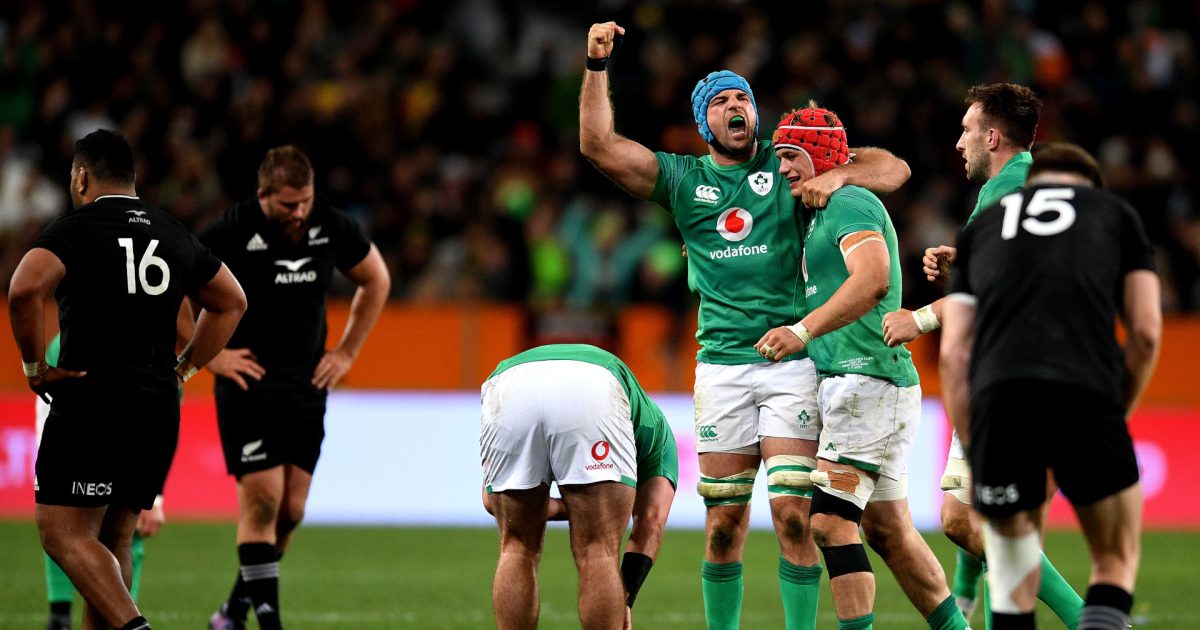Why the All Blacks must adjust their defence to beat Ireland

Criticism continues to mount on New Zealand’s defence, this time a former All Black has spoken out about what needs to change for the team to beat Ireland in the quarter-final.
Previously labelled too “passive”, the All Blacks have largely resisted the trend of top teams to implement a more aggressive, rushed defensive line.
Ireland great Rob Kearney was joined by La Rochelle coach Ronan O’Gara recently in identifying the defensive system as a weakness, saying it hands the opposition’s attack too much of an opportunity and puts the defenders in unfavourable situations.
“They’re very passive, they give the opposition a lot of time and space on the ball that the Irish attackers will love,” Kearney told Virgin media Sport.
If the All Blacks are to adjust their system for the Rugby World Cup’s knockout stages, O’Gara says it could change the outlook of the tournament.
“I think if they’re very aggressive with their defence, they could surprise people and go all the way,” he told The Breakdown.
That is a big if, though. Former All Black James Parsons added his analysis to the conversation, saying his former team must treat the problem at it’s root.
“Line speed doesn’t even really start with line speed though,” he told the Aotearoa Rugby Pod.
“They’re fit enough to bring line speed. It’s about the initial tackle, the collision in the tackle; you have to win that in the initial hit, try and get double shoulders on so they can dominate that collision, because their carriers are so strong and powerful and they get you retreating all the time.
“Then, secondly, you have to put some pressure in there defensively to slow the ball down. Because if you don’t slow the ball down then you’re never going to be able to bring that defensive pressure.
“I do think at times, Scotland slowed the ball down. In both of those tries we talked about, (James) Lowe’s first one and probably more so (Hugo) Keenan’s one, I know it was midfield ruck, well, mid-ish, and the normal thought is they can go both ways, but I think you’ve got to throw the normal rules out of the book because of the way Ireland attack.
“They can create that depth and if you let them get through five passes and you’ve got a staggered defensive line, where Bundee Aki comes down and then free’s up with the offload, because they don’t win that initial contact collision, then they’re constantly on the back foot.
“But, also what’s worst case scenario is if you put them under pressure, like massive line speed pressure, yes they can kick there, I get that, but then you’re just going to have to outwork. Because, if you don’t do that, you’ve got these guys on inside that are just going to have to corner flag it. Yes, they’ll get some wins, but you’ve got to be comfortable with that, you’ve got to accept it.
“If you don’t adjust their attack, and you let them go through their plays, they’ll win.”


















